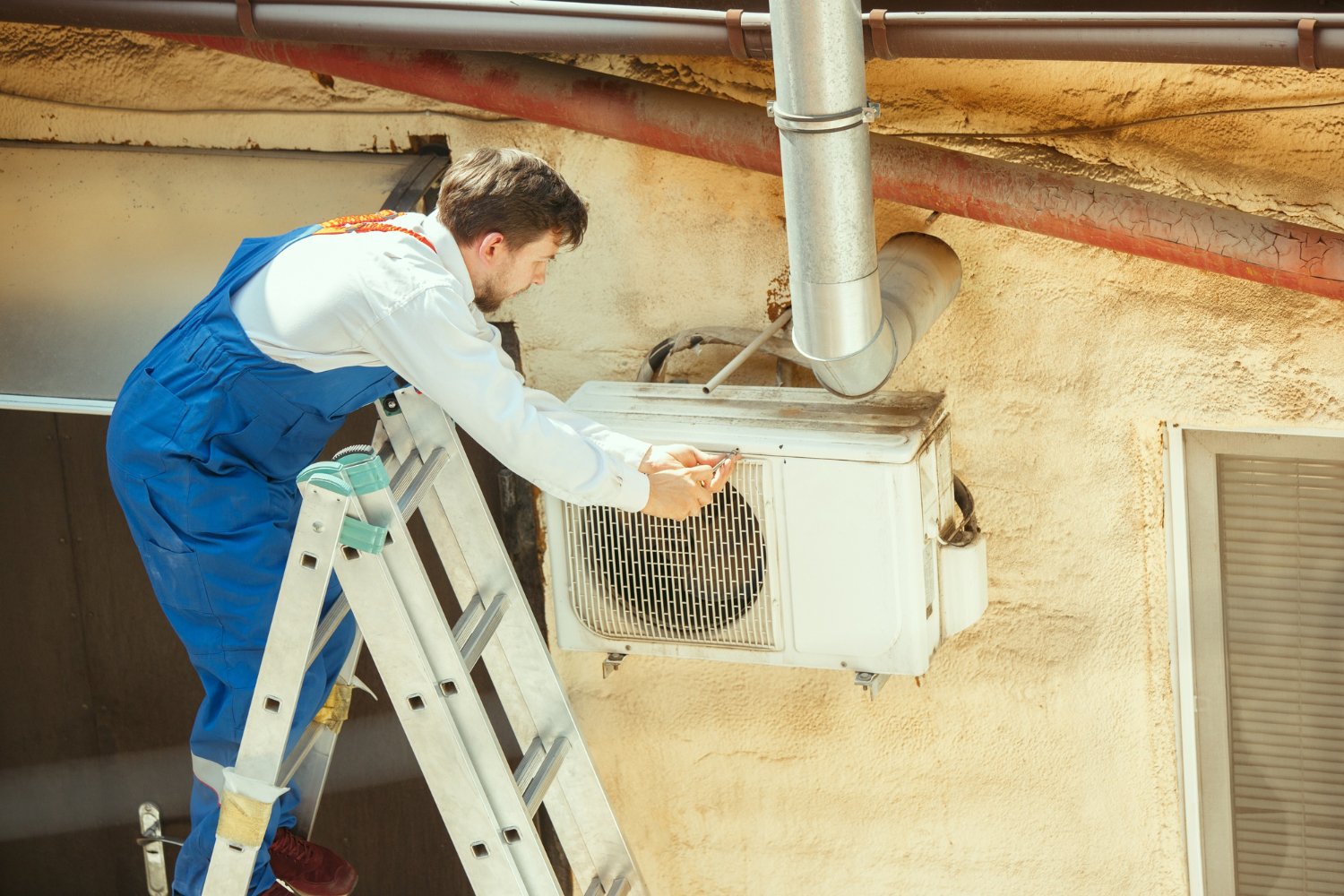Air conditioning problems can rear their ugly head any time, especially during summer. The key to preventing these problems from affecting indoor comfort is catching them early and addressing them quickly. In most cases, your air conditioner will give some signs or symptoms before breaking down. Catching those clues and addressing them will help prolong your air conditioner’s life span and improve indoor comfort. True Blue Heat and Air has identified some signs to watch out for.
Air Conditioning System Blowing Warm Air
It’s unusual to have your air conditioner blowing warm air. Quite frankly, the job of blowing warm air is beyond the scope of its functions. If your air conditioner is blowing warm air, there’s a chance that it has become problematic and needs attention.
Contact your HVAC technician as quickly as possible and ensure that you shut down the air conditioner until their arrival. Turning the system off ensures that you do not put any more pressure on the system, thus avoiding further damage.
The Air Conditioner Thermostat Is Not Working
The thermostat is one of the components of your AC unit. It controls the temperature fluctuation and changes and tells the AC whether to produce more cool air or be on standby. A broken thermostat won’t communicate essential temperature-related information to your AC unit. This may result in an indoor environment that is too cold or too warm.
Thermostat problems can also cause your air conditioner to cycle frequently or turn off. You may also notice that your air conditioner won’t come on. Contacting your HVAC technician is the best way to address this problem. They can determine if the thermostat has been affected by an electrical problem and if it needs repairs or replacement.
Little Air Blowing Out of the Vents
Your air conditioning unit should be functioning at optimal speed and performance levels. However, when a little air is produced, it may be harder to maintain the desired indoor temperature, thus leading to hot/warm spots in the house.
Such problems can be traced back to the AC’s compressor or could be a duct problem. Your HVAC contractor is better positioned to confirm the diagnosis and fix the problem.
Loud and Strange Noise Inside the AC Unit
Your AC unit should function with minimal noise. In most cases, a low humming sound should indicate your AC unit is working and active. Any strange noise from your cooling unit deserves attention. It may be a problem with loose or broken parts.
Contact your HVAC contractor as soon as possible to check the problem. Avoid delaying on such problems as it could cause more damage.
The Strange Odor From Your AC Unit
Your air conditioning unit should offer clean, cool, and fresh air. However, if you’ve noticed a strange odor from your AC unit, chances are that the filter is clogged or there’s a problem with the vents. The strange odor may also be traced back to mold problems which may have resulted from water deposits during the condensation process.
Contact your HVAC technician as quickly as possible to check the problem.
Low Humidity Removal
One of the basics of a functioning AC is humidity control. Your AC unit should be able to remove indoor humidity to prevent mold and mildew growth. However, if your AC isn’t removing as much humidity, chances are high that there’s a problem that needs attention. Contact your HVAC professional as quickly as possible.
Recurrent AC Problems
Recurring AC problems are no fun. They cost a lot of money and can frankly be disheartening. Contact your HVAC contractor to know the recurrent problem and how to fix it permanently. You may need to purchase new AC parts or replace your old AC unit to save money in the long run.
Water or Freon leaks around the AC unit
Moisture is common with air conditioning units; however, there’s a designed channel that regularizes the moisture to prevent water damage. Your AC unit needs attention if you’re experiencing moisture problems due to its performance. You may also need to contact your HVAC technician if there’s a leak around your AC system.
The leak may be moisture or Freon escape; either way, it is not a good outlook on your air conditioner and its performance. Your AC repairman may be able to identify the problem area, which may mostly be due to damaged tubes.
Rising electric bill
Your electricity bill is a significant indicator of your energy usage. If, however, you’ve noticed a spike in your energy bills due to AC usage, then you need to contact your HVAC repair technician. This problem may be traced back to blocked or clogged filters. It could also be a problem with broken or damaged AC parts.
Contact your HVAC repair technician as soon as you notice one or more of these problems. Addressing them early can help you save costs.
